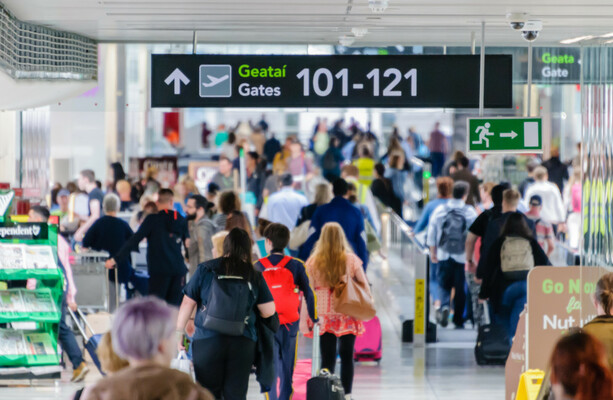TRANSPORT MINISTER DARRAGH O’Brien will seek approval today for legislation to remove the passenger cap at Dublin Airport.
The minister will look for permission from Cabinet to draft the general scheme of a bill that will give his office the power to remove or amend the limit on annual passenger numbers at Dublin Airport.
The current Dublin Airport passenger cap is set at 32 million passengers per year.
It is a condition of the planning permission granted for the construction of Terminal 2 in 2007. In April, the High Court suspended the Dublin Airport passenger cap beyond the summer after a number of key issues relating to the case were referred to Europe.
The transport minister previously told The Journal in an interview that he did not want to see the airport numbers restricted through a cap.
The passenger cap has caused controversy over the last year, with Ryanair boss Michael O’Leary slamming the government this summer for the slow pace of action.
He hit out at the government for not passing legislation to scrap the cap within the first six months of the government’s term.
Taoiseach Micheál Martin has previously said it is “imperative” the passenger cap is lifted.
Aside from the passenger cap, Cabinet will also discuss the commitment to develop a long-term strategy for Irish airports across Ireland.
Budget
Separately, with Budget day approaching, Finance Minister Paschal Donohoe will bring a memo to Cabinet on the upcoming White Paper, traditionally unveiled every year before each annual Budget, which provides estimate for 2026.
Tánaiste Simon Harris will update Cabinet on the recent agreement with the UK on dealing with the legacy of Northern Ireland’s Troubles.
It includes a Government commitment to provide €25 million to support victims and families over the next three years and a new dedicated legacy unit in An Garda Síochána by the end of the year.
The unit within the gardaí will act as a single point of contact for cross-border cooperation on Troubles-related cases and for victims and families. It is expected to be operational by the end of the year.
The Tánaiste will tell colleagues that the changes envisaged under a new Legacy Commission are significant and welcome and represent a step-change.
However, he will say that it will be important to see these translated faithfully into legislation by the UK government. The Irish Government may also be required to introduce legislation to deliver on some of its commitments made under the deal.











